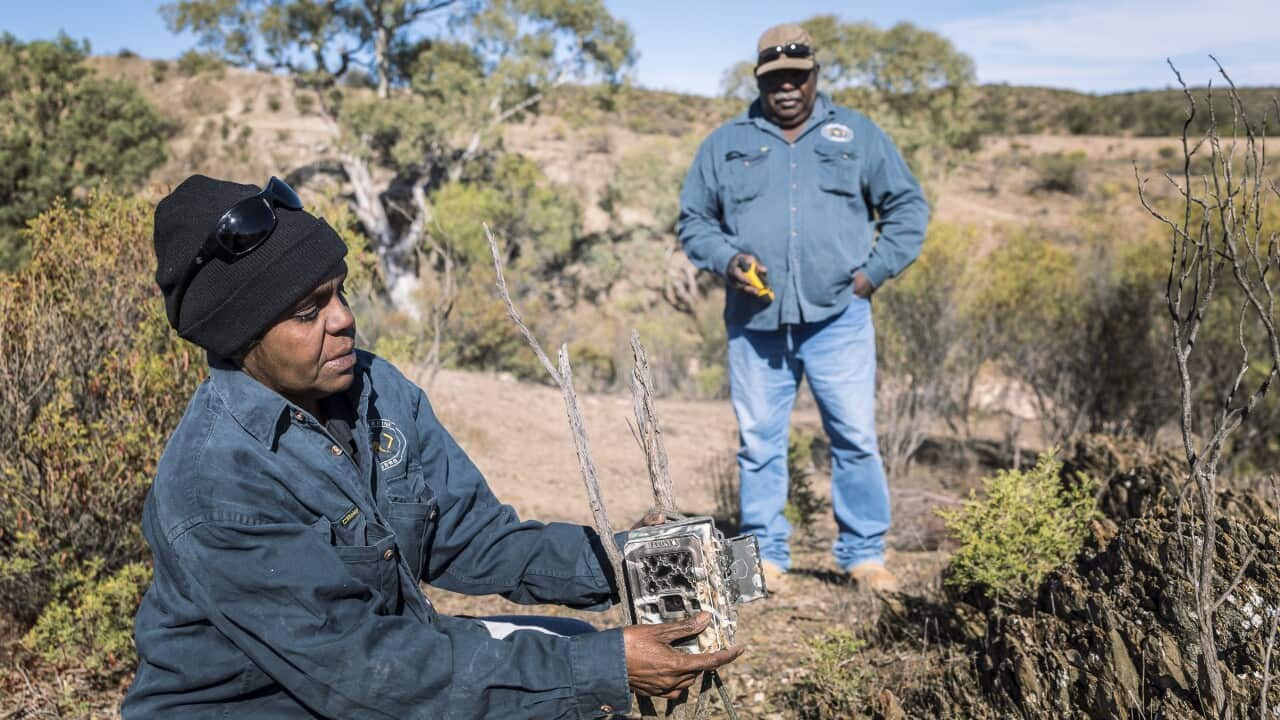Indigenous ranger groups have welcomed a boost in government funding but maintain that a longer-term commitment would ease the anxiety caused by the uncertainty of budget renewal.
The Australian government announced this week that rangers who look after protected areas across Australia will share an additional $87 million over the next five years.
Indigenous Affairs Minister Nigel Scullion made the announcement on Monday as part of NAIDOC Week.
'It's a hopeless situation'
“Why it took so long, I’ve got no idea,” said Denis Rose, a Gunditjmara Elder who oversees an area in south-west Victoria which could soon be included on the UNESCO world heritage list.
“I was really unsure if I’d have a job this financial year.”
The project manager for the Gunditj Mirring Traditional Owners Aboriginal Corporation described the financial situation as “hopeless”.
“Aboriginal and Torres Strait Islander organisations have contributed to their lands and improving environmental values for all Australians,” Mr Rose told NITV News.
“We’re still trying to finalise a contract with the Commonwealth. It’s just a reflection of the problems within the Department of Prime Minister and Cabinet.”
The increased government funding will be divided among 48 Aboriginal and Torres Strait Islander organisations to support 76 existing Indigenous Protected Areas (IPAs).
The areas cover approximately 67 million hectares or about 9 per cent of Australia.
'Invest in success'
An independent review released in May gave a glowing review after conducting a cost-benefit analysis of the "social return on investment" in five IPAs.
The report said the IPA and ranger programs were: "effectively overcoming barriers to addressing Indigenous disadvantage and engaging Indigenous Australians in meaningful employment to achieve large-scale conservation outcomes."
It reportedly left the sector proud of the success of the program and disappointed about the lack of enthusiasm from the government.
Funding for IPAs was due to end in June but was thrown a lifeline in last year's federal budget, with a five-year funding extension.
Opposition Leader Bill Shorten renewed the Labor Party’s promise to double the number of Indigenous rangers in his budget reply speech.
A coalition of 23 Traditional Owner and ranger groups, working through the Country Needs People campaign, had called for the government to “invest in success” and increase funding.
'Can’t sustain long-term outcomes on short contracts'
Patrick O’Leary from the Pew Charitable Trusts, which partners with dozens of ranger groups as part of the campaign, welcomed the ongoing government support.
He also suggested that longer-term funding cycles would lead to more effective programs.
“The government should be looking over a decade timeframe or longer because you can’t sustain long-term outcomes on shorter contracts,” Mr O’Leary told NITV News.
“If we can give long-term stability, then we can get so much more done for the environment and local communities.”
In April, the Indigenous Affairs Minister announced a three-year, $250 million extension to the Indigenous Rangers program – a week before the federal budget was handed down, and less than two months before the program's previous funding was due to expire.
The program employs more than 2000 people to work on their traditional lands, rehabilitating and managing the environment – both land and sea.
“The government should be looking over a decade timeframe or longer because you can’t sustain long-term outcomes on shorter contracts,” Mr O’Leary said.
“If we can give long-term stability, then we can get so much more done for the environment and local communities.”
'Give us a go'
Tanya Elone, who manages the Banbai-Wattleridge Indigenous Protected Area in the NSW Northern Tablelands, said the lack of financial certainty had dampened morale.
“We have 15 Aboriginal people that are employed through our program so that will affect 15 families,” she said.
“Without that security, they don’t really plan for the future. That’s really hard.”
“They’re disheartened and it’s hard to boost their morale. There’s no certainty about what’s going to happen.”
Ms Elone said that the program had wide-reaching benefits in the Banbai community.
“The community that we live in has only 2500 people. We’ve invested $3.5 million since 2001. The whole town will be affected if the program doesn’t get up.”
Until the results of a government audit are handed down, her workers face an uncertain future.
“For a lot of them, this is their first job. Give us a go,” Ms Elone said.
“They love the bush and love being out on Country. Their lives have changed just being out there.”

